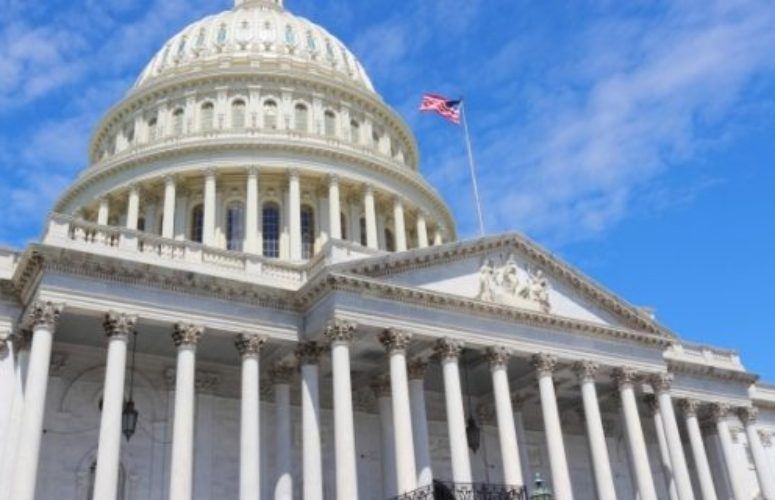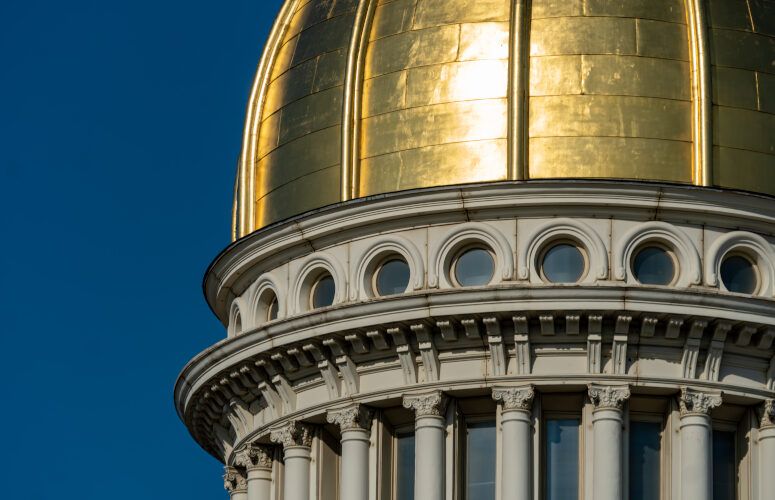
Monmouth Poll: Federal Government Not Helping States Enough
Fauci most trusted official on COVID-19 crisis
On Apr 8, 2020Public confidence in the federal response to the coronavirus outbreak has dipped and most Americans say that Washington is not doing enough to help the states hit hard by this pandemic. The Monmouth University Poll finds that the nation’s governors continue to earn praise for their response to the pandemic, while approval of President Donald Trump’s actions has dropped. The poll also finds that Dr. Anthony Fauci is the most widely trusted face in the government’s response to the COVID-19 outbreak, but pockets of the public remain skeptical of the extent of the emergency.
Americans have become less satisfied with actions taken by the federal government to slow the spread of the virus over the past few weeks. A majority (54%) say the federal measures have not gone far enough (up from 45% who said the same in late March). Another 35% say these measures have been appropriate (down from 47%) and 7% say they have gone too far (similar to 6% last month).
A majority of the public is at least somewhat confident that the country will be able to limit the outbreak’s impact over the next few weeks, but this confidence has dropped since last month. Currently, 15% are very confident (down from 25%) and 38% are somewhat confident (similar to 37% in March). Another 24% are not too confident (up from 21%) and 21% are not at all confident (up from 15%).
By contrast, most Americans are satisfied with the actions taken by state government. Six in ten (60%) say the steps taken by their individual states have been appropriate, while just 30% say they have not gone far enough, and 8% say they have gone too far. These results are nearly identical to last month’s poll (62% appropriate, 25% not far enough, 9% too far).
A majority of the public (55%) say that the federal government is not doing enough to help states that have been hit hard by the outbreak. Just 37% say that Washington has done enough and 3% say it has done too much to help these states.
“Most Americans disagree with the Trump administration’s position that the federal government is a backup to the states. The public seems to view this as a national crisis that requires a national response on par with the aggressive approach taken by the states,” said Patrick Murray, director of the independent Monmouth University Polling Institute.
State governors (72% good job to 21% bad job) and health agencies in the federal government (66% to 25%) continue to earn the highest praise for the way they have been dealing with the outbreak. Public opinion for these two groups is similar to last month’s Monmouth poll (72% to 18% for governors and 65% to 24% for federal health agencies). Public praise for the nation’s governors remains bipartisan with 74% of Democrats, 71% of Republicans, and 70% of independents saying their governor has done a good job dealing with the situation.
Americans have become more negative on the president’s handling of the coronavirus outbreak, with 46% saying he has done a good job and 49% saying he has done a bad job. Just over two weeks ago, he received marginally positive reviews of 50% good job and 45% bad job. Those saying he has done a good job range from 87% of Republicans to 45% of independents and just 16% of Democrats. Trump’s overall job rating has also ticked down, now standing at 44% approve and 49% disapprove. Last month he earned a 46% to 48% rating, but his current numbers look more like his 44% to 50% rating in February. It is important to note that the differences in Trump’s job rating from February to March to April are all within the survey sample margin of error.
Negative opinion of how Congress has handled the outbreak has grown since last month. Currently, 41% say Congress has done a good job and 45% say it has done a bad job. Last month, these ratings were 42% good job and 37% bad job. Still, the overall job rating for Congress has improved since before the outbreak. It now stands at 32% approve and 55% disapprove. It was 20% approve and 69% disapprove in February.
The poll finds that public opinion on the media reporting about the outbreak has improved somewhat since last month. It now stands at 48% good job and 42% bad job compared with 45% good job and 43% bad job in March. The worst reviews from poll respondents for dealing with the pandemic continue to be directed at their fellow citizens – 38% say the American public has done a good job dealing with the outbreak but 48% say it has done a bad job. This compares with the 38% good job and 45% bad job rating the American public earned last month.
When asked whom they trust the most among the public officials who appear on TV talking about the COVID-19 outbreak, more than 1 in 3 (35%) Americans name Fauci, head of the National Institute of Allergy and Infectious Diseases. The next most frequently cited officials are New York Gov. Andrew Cuomo (23%) and Trump (20%). Other trusted officials are Dr. Deborah Birx of the White House Coronavirus Task Force (14%), U.S. Surgeon General Jerome Adams (11%), and Vice President Mike Pence (10%). Other individual state governors are named by 14% of the public as officials they trust the most to talk about the pandemic.
“Dr. Fauci was known to very few Americans at the beginning of this year. The fact that one-third now look to him as the most trusted voice in Washington speaks to the public’s desire for a reliable authority figure in this crisis,” said Murray. He added, “New York’s governor has emerged as a national voice during this crisis. In fact, the nation’s governors as a whole tend to earn more trust than the White House when it comes to dealing with this crisis.”
When asked to choose between their state’s governor and the president, 43% of Americans say they trust the COVID-19 information provided by their governor more while just 15% say they trust Trump more. Another 29% say they trust both the president and their governor equally and 12% say they trust neither person. In states with Democratic governors, 50% trust their governor more, 19% trust Trump more, 21% trust both equally and 9% trust neither. In states with Republican governors, 34% trust their governor more, 9% trust Trump more, 40% trust both equally and 16% trust neither.
Among Republicans in states with Republican governors, 26% trust Trump more, 11% trust their governor more, and 61% trust both equally. Among Republicans in states with Democratic governors, 44% trust Trump more, 15% trust their governor more, and 36% trust both equally. Most Democrats trust their governor more than Trump regardless of their governor’s political party, although 25% of Democrats who live in states with Republican governors say they trust neither the president nor their governor when it comes to providing information on the coronavirus outbreak.
The poll finds pockets of disagreement on the extent of the health crisis. This includes 34% who say that estimates that 200,000 Americans might die from the virus are being overstated, 23% who say that only the elderly or those with underlying health problems are at risk of getting seriously ill, and 20% who say reports about hospitals lacking needed medical supplies have been exaggerated. Republicans are more likely to agree with each of these statements while Democrats are the least likely.
Currently, 30% of the public says the country is headed in the right direction while 61% says it is on the wrong track. This is more negative than late last month (39% to 54%) as well as in February before concern about the pandemic became widespread (37% to 57%).
The Monmouth University Poll was conducted by telephone from April 3 to 7, 2020 with 857 adults in the United States. The question results in this release have a margin of error of +/- 3.4 percentage points. The poll was conducted by the Monmouth University Polling Institute in West Long Branch.
To access more business news, visit NJB News Now.
Related Articles:





